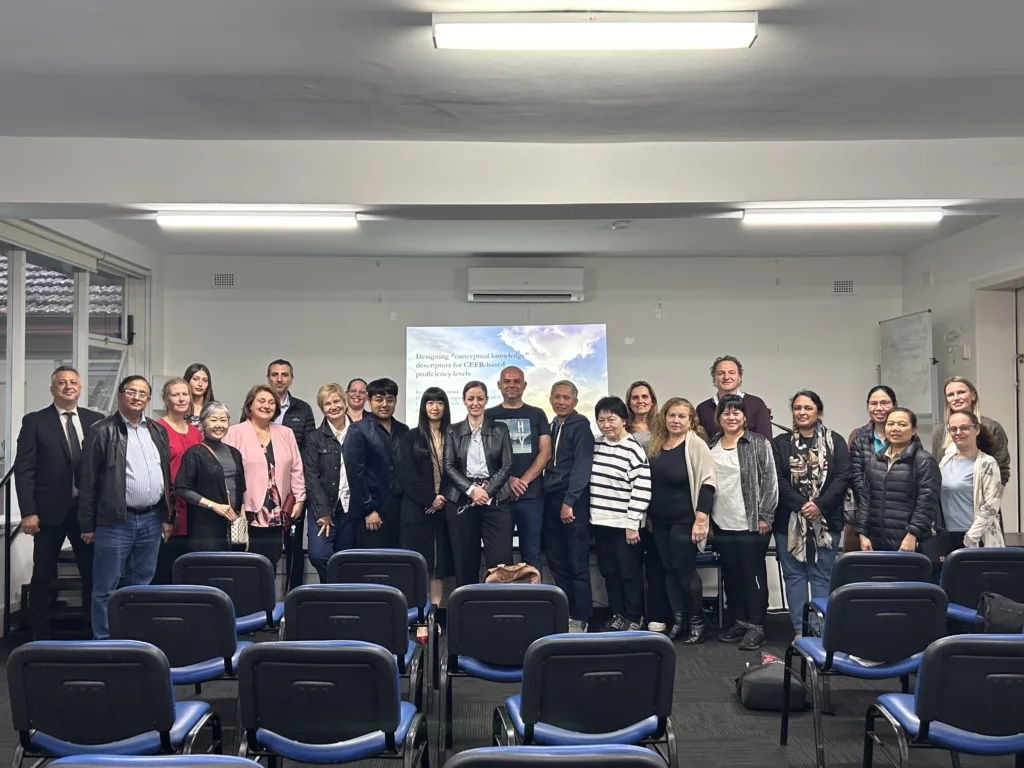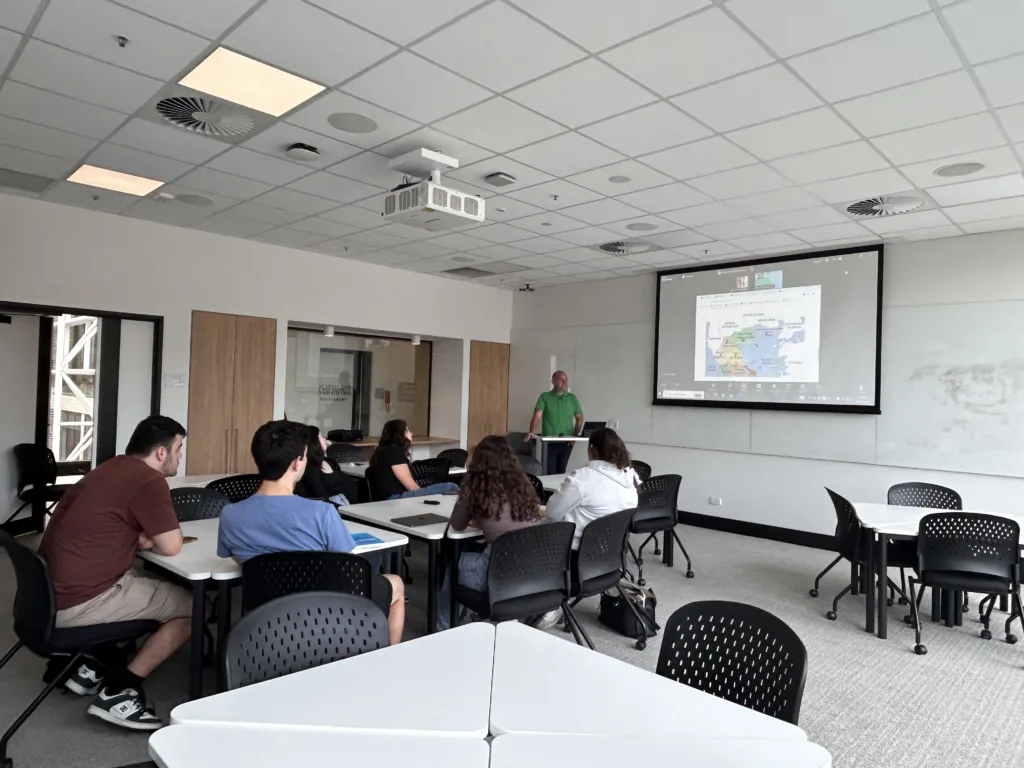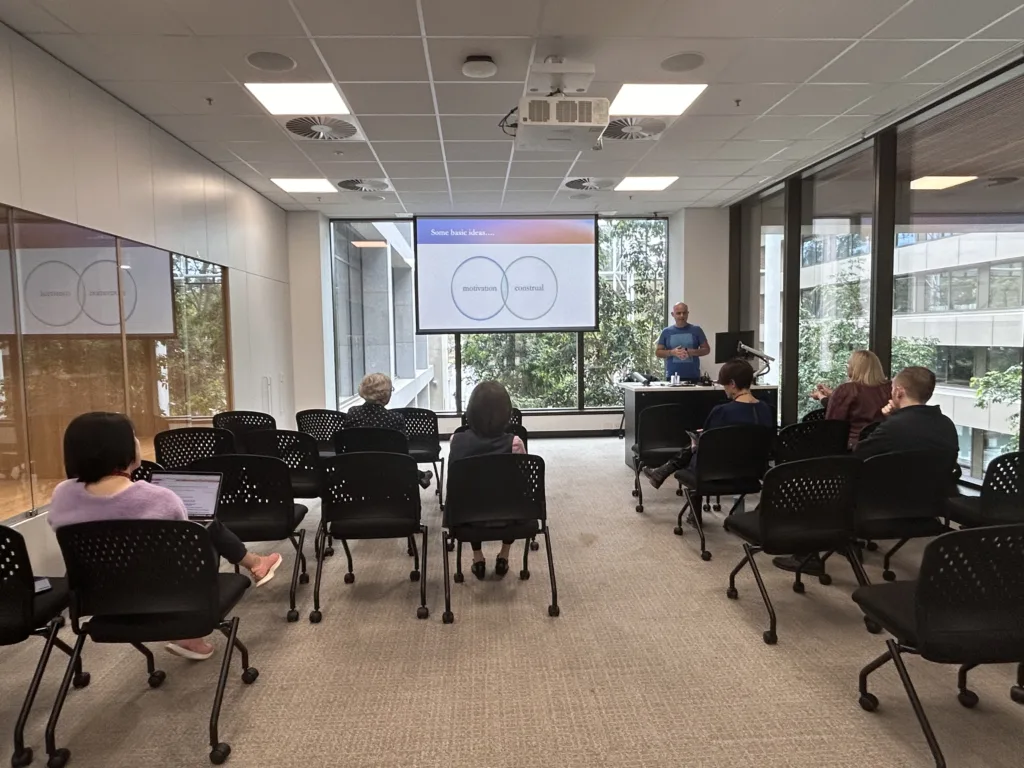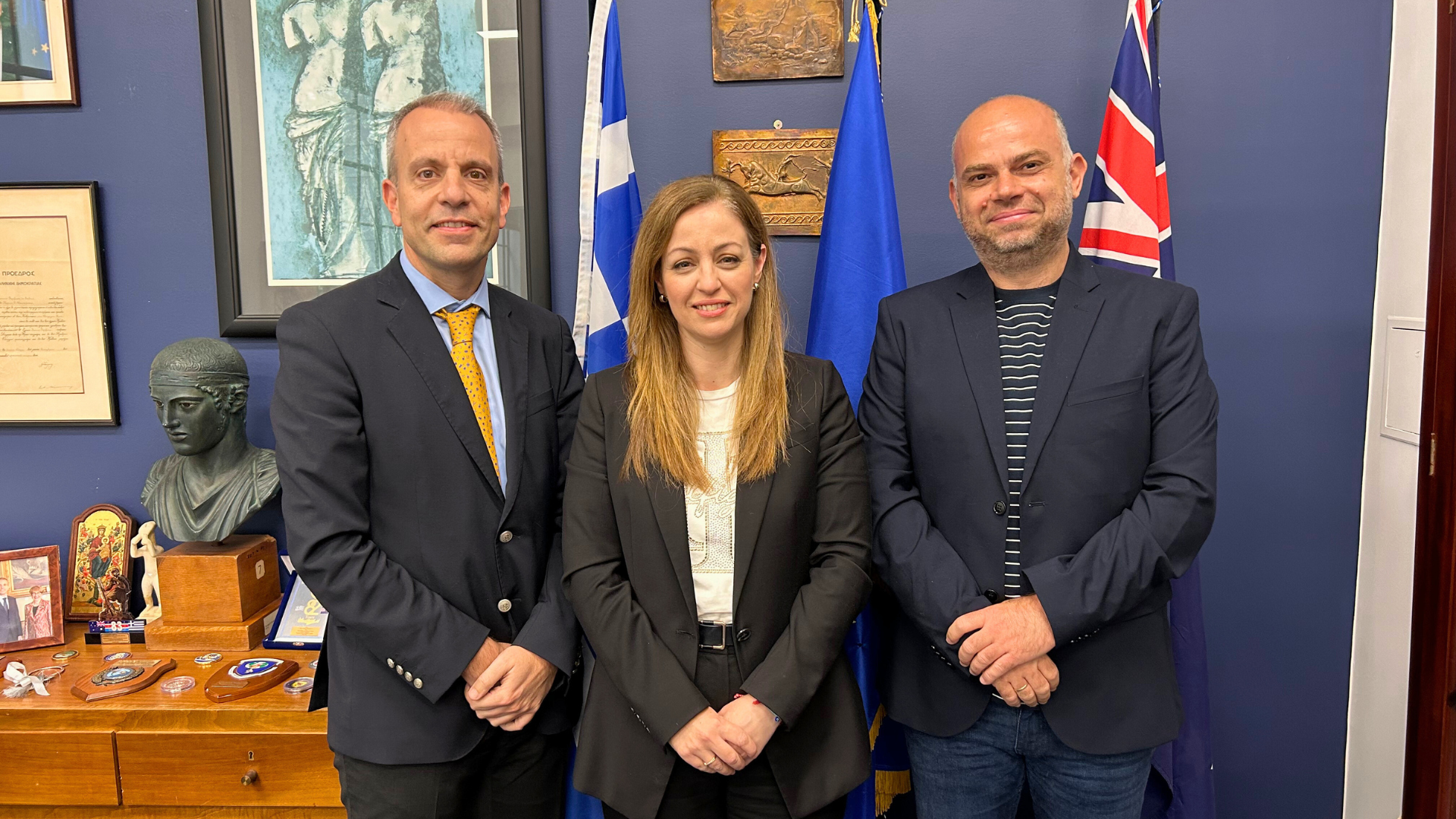Ioannis Galantomos is a Professor of Applied Linguistics at the University of Thessaly, with a strong academic background in Greek literature and linguistics. He holds a PhD in Applied Linguistics and has taught at several Greek universities. His research focuses on applied cognitive linguistics, teaching Modern Greek as a second language, and bilingualism.
Dr Galantomos has extensive experience in designing teaching materials for Greek as a foreign language and has authored multiple books and articles on teaching figurative vocabulary in second language contexts.
Dr Galantomos was a visiting scholar to the Department of Media, Communications, Creative Arts, Language and Literature at Macquarie University within the framework of the scholarships granted by the Greek State Scholarships Foundation.
Dr Galantomos, could you share a bit about your journey in the field of applied linguistics and how you became interested in foreign/second language teaching, particularly in figurative vocabulary.
First of all, I would like to thank you for the opportunity you are giving me to share the goal and the details of my visit to Sydney. Moving on to your question, Applied Linguistics lies at the intersection of Linguistics and Education. In other words, an applied linguist has a strong background in Linguistics and extends this knowledge to practical issues related to second language acquisition mainly. This is the main approach we adopt in Greece. However, nowadays when we refer to Applied Linguistics, we mean various applications of Linguistics, such as Translation and Computational Linguistics.
When I was an undergraduate student, I developed an interest in how we can effectively teach Modern Greek to foreigners given that our language is considered to be quite difficult. This is the case with vocabulary and particularly figurative vocabulary, that is metaphors and idioms which is related to enhanced communicative competence in a given language. Modern Greek exhibits a high degree of both metaphorical language and idiomaticity and that’s why I started researching ways to effectively teach Greek as a foreign/second language figurative vocabulary.

As an expert in teaching Modern Greek as a foreign/second language, what unique challenges do you find learners face with Greek compared to other languages?
As I mentioned in my previous answer, Modern Greek is quite difficult, and many Greek learners get frustrated when dealing with many exceptions and rules. Based on my teaching experience, one of the areas that is quite demanding is figurative language. Until recently, figurative vocabulary was marginalised or given little attention. Nowadays, research has shown that figurative language fosters communicative abilities in the target language and given the many metaphors and idioms in Modern Greek it becomes quite challenging to adopt and apply teaching techniques that raise figurative language awareness and thus enhance knowledge and use of Modern Greek.
During your stay in Sydney, you engaged with members of the Greek community. Can you tell us about the engagement activities you participated in with Dr Patricia Koromvokis in Sydney?
First of all, I would like to mention that my visit took place within the framework of the scholarships granted by the Greek State Scholarships Foundation (ΙΚΥ) aimed at developing and deepening co-operations between Greek faculty and their colleagues from foreign Universities or Greek language, culture and history institutions.
With my colleague, Dr Koromvokis we designed a very comprehensive schedule including visits to the three Greek Orthodox schools and other institutions focusing on foreign language education. More particularly, these activities included training seminars and lectures at Macquarie University and institutions, such as the NSW Federation of Community Language Schools and the Sydney Institute Community Language Education and of course, visits to the Greek Orthodox schools of St Spyridon, St Euphemia and All Saints Grammar School.
Finally, we visited the Greek Consulate General of Greece in Sydney, and had a very productive discussion with the Greek Consul General, Ioannis Mallikourtis.

What kind of cross-cultural insights or collaborative ideas did you exchange with the community and local institutions?
I believe that there was an exchange of good practices regarding Modern Greek language instruction, share of common experiences and discussions about future initiatives that will promote Modern Greek language teaching.
What impact do you believe maintaining strong connections between Greek diasporic communities and Greece has on both language retention and cultural identity?
Language, religion and culture are considered to be the pillars of the Greek national identity. Given the characteristics of each context abroad, these pillars can be flexible and contribute to different degrees of the contemporary understanding of “Greekness”. Both Greece and diasporic communities should work together so as to maintain these pillars. If this is not entirely possible, both Greece and diasporic communities need to adopt a flexible approach based on the particularities of the Greek diasporic communities and the contexts, they develop in.
What are your thoughts on the future of the Greek language in Australia?
I am optimistic given that certain prerequisites are met. What I mean by this is that regulatory bodies, such as the NSW Education Department, promote foreign language knowledge actively, Greek instructors remain engaged in what they do, families support the use of Modern Greek and Greek learners are motivated to enhance their knowledge of the language.
How do you see the role of Greek bilingual schools in Australia contributing to the preservation and promotion of Modern Greek language and culture within the diaspora?
The role of the Greek schools is of paramount importance in preserving and promoting Greek language and culture along with the family. And of course, this goal is feasible if what we mean by bilingual education is a form of education delivered in two languages, English and Greek. The two languages should be equally represented across the curriculum and if this not achievable the school administration should seek a descent and functional balance.

How do you envision the future of Modern Greek language teaching evolving, particularly with the rise of technology and online learning tools?
Again, I must say that I am quite optimistic taking into consideration the various uses technology can serve in language instruction. Technology can be a kind of an “assistant” to both Greek language instructors and learners. Technology should not be seen as a threat but as a challenge to make Greek language instruction more transformative. At the same time, on-line learning tools can widen participation in Modern Greek classes in cases where in person attendance is not feasible.
Are there any upcoming research projects or initiatives in applied linguistics that you’re excited about and can share with us?
Yes, of course. I am designing a summer school for Greek learners in Volos and a training seminar for Greek instructors that will familiarise them with current instructional techniques in teaching Modern Greek.
